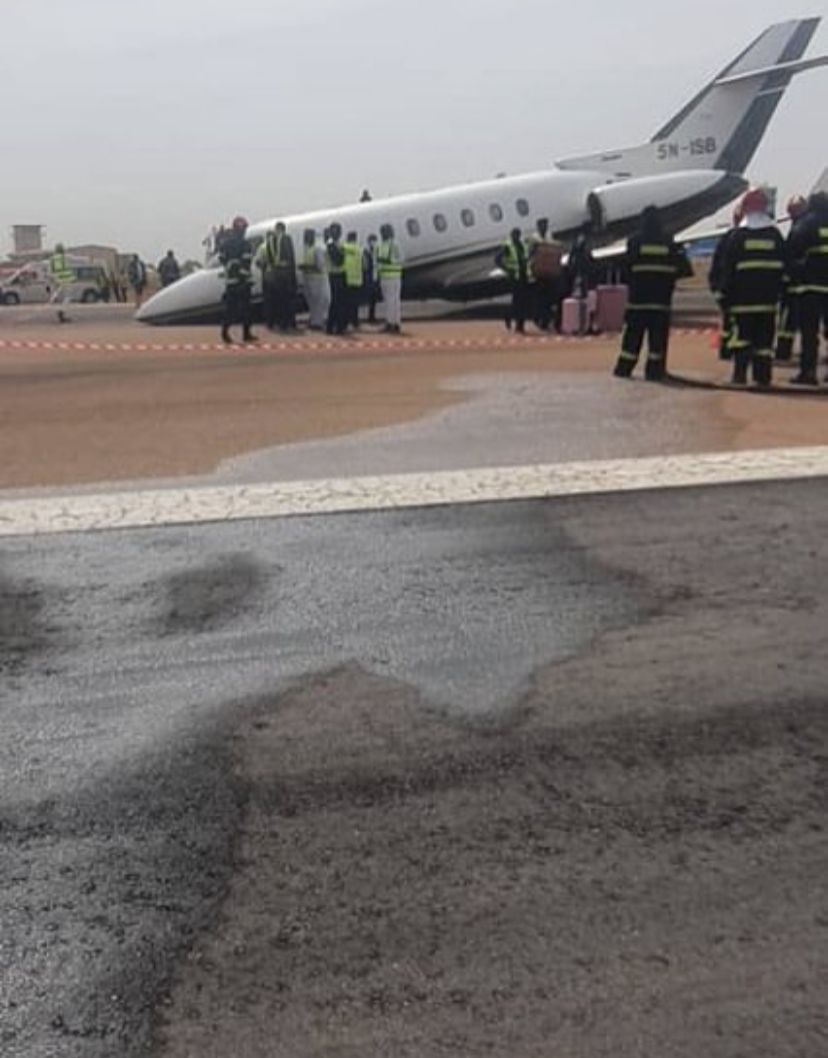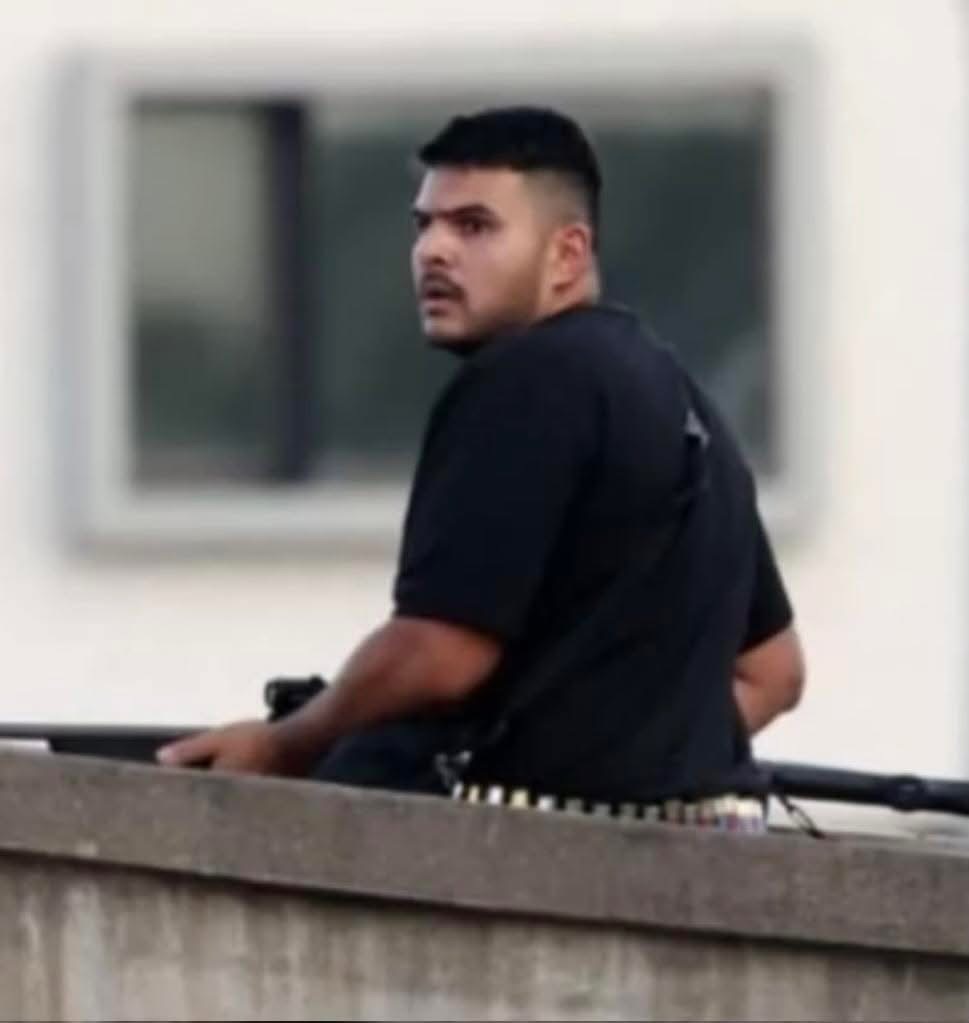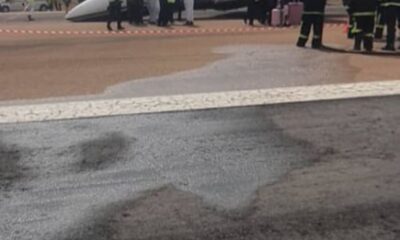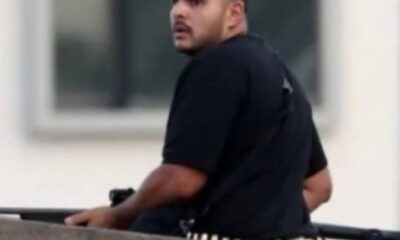Trending
Ukraine hopes its incursion into Russia changes outcome of war

Story by James Waterhouse – Ukraine Correspondent, in the Sumy region
“All wars end with negotiations. It’s not the soldiers in the trenches who decide when.”
Arni joined the Ukrainian army in 2022 to fight for his country’s survival. When we bump into him 30 months later, he describes a new motivation. “Peace.”
“No-one likes war, we want to finish it,” he says while leaning against his camouflaged pick-up truck.
For the troops we encounter close to Russia’s border, there’s a desire to end Russia’s invasion on acceptable terms.
That is not to say survival isn’t a core driver – it is – but they seem to be striving for a finish line.
“For Ukraine, our people, we’ll stand until the end,” adds Arni.
Until 6 August, Ukraine’s sole objective was one of liberation. The complete repelling of Russian forces to its borders from before Russia first invaded in 2014.
Albeit at a grinding pace, the reverse has been happening for the past year-and-a-half with Moscow eroding Ukrainian territory.
Then came the “all in” poker play which surprised everyone apart from the battle-hardened Ukrainian soldiers who carried it out: a counter-offensive into Russia’s Kursk region.

Arni says Ukraine’s military objectives have shifted from survival to peace
© BBC
“It was undeniably successful and daring,” observes Serhii Kuzan, chairman of the Ukrainian Security and Co-operation Centre, a think tank.
Now, Kyiv can’t reference its offensive often enough, with countless pictures of troops giving out aid as they tear down Russian flags.
“It also changes the narrative,” says Alina Frolova, security expert and former deputy defence minister of Ukraine. “A situation where we’re losing territory step by step is not a good one.
“Ukraine’s strategic position has changed.”
Despite parallels with Russia’s initial invasion, Kyiv claims its goal is not to occupy.
So what is the aim? Well, there’s more than one.
Buffer zone
“This attack was partly carried out so the city of Sumy was better protected,” explains Serhii Kuzan, who thinks it is often forgotten that the border is still a front line.
Since the start of this summer, President Volodymyr Zelensky says there were more than 2,000 strikes on the Sumy region from the Kursk region alone, including 250 glide bombs.
For months it was feared Russian troops were preparing for a cross-border attack of their own, and by pushing them back, Serhii believes defending Ukraine in general will be easier.
“The [now captured] Russian city of Sudzha is on a commanding height. The Russians are already in a less advantageous position because we control the approach routes.”
While Russia has had to react to Ukraine on the battlefield, it has also had its supply lines targeted. Key roads have been seized and a strategically important bridge destroyed.
Which leads us to:
The redeployment of Russian forces
“The main purpose of this offensive into Kursk is to divert Russia’s attention from its occupied territories in Ukraine,” says Ivan Stupak, who worked for Ukraine’s security service (SBU) between 2004-2015.
The good news for Ukraine is that is what appears to be happening. The bad news is that Russian advances, notably towards the town of Pokrovsk, are not slowing.
“The Russian army has been redeploying some troops from different directions – the Kherson, Kharkiv and Donetsk regions, for example,” Ivan says. He believes around 10,000 personnel are being diverted, mostly from other parts of Russia.
The ‘exchange fund’
It is how President Zelensky describes Ukraine’s collection of captured Russian soldiers.
Historically, when Ukraine has momentum, it captures more and consequentially negotiates the release of their own more easily.
The Kursk offensive has been no exception. Kyiv says hundreds of Russian troops were taken prisoner. Several could be seen surrendering in drone footage and being taken back to Ukraine with tape blindfolds.
“Moscow is actually offering to start negotiations to exchange prisoners of war,” says Serhii Kuzan.
“It is no longer us, enlisting the support of Qatar and the United Arab Emirates to ask Russia to hand over our prisoners of war.”
Pressure
This is a huge part of it for Kyiv.
On a civilian level, you had the horror and anger felt in the Kursk region in response to the blistering Ukrainian assault on their homes.
There were mass evacuations, pleas for help and criticisms of some authorities for not preventing the attack.

Ukraine hopes its incursion into Russia changes outcome of war
© BBC
On a political level, you had Russian President Vladimir Putin publicly processing events in Moscow while being briefed by his security chiefs.
And of course there is the military level.
“The influence of this Ukrainian incursion could be quite substantial,” concludes Alina Frolova. “That’s why using highly professional troops was specifically the right decision.”
Future bargaining chips
If Ukraine does not plan to keep hold of its captured Russian territory in the long term, but can hang on long enough, it hopes to leverage it for the release of its own land.
But it’s a big “if”.
When fighting slows, that has always suited Russia with its superior size. Misdirection and surprise has often worked for Ukraine.
“In a symmetric war, we have no chances with Russia,” points out Alina Frovola. “We need to make asymmetrical actions”.
Slowing advances in the Kursk region may leave Kyiv with difficult decisions.
But there are benefits for as long as there is movement, Serhii Kuzan argues.
“An advance rate of 1-3km a day is normal for swapping forward units with reserves,” he says. “In Ukraine’s Donbas region, the average advance rate for the Russians is 400m.
“Our pace in the Kursk region is five times faster than a 100,000-strong army!”
But the problem for Kyiv, is that Russians are still going forward in Ukraine.
However, don’t expect Ukraine to withdraw from its Russian attack anytime soon.
It is committed now.
And what about Vladimir Putin?
Russia’s president initially labelled the offensive as a “terrorist attack” and “provocation”, but in the days since he has barely referenced it publicly.
That’s despite it fitting into his narrative that Russia’s invasion is a defensive war to protect his people.
Perhaps he doesn’t want the alarm felt by many in the Kursk region to spread, or for it to appear like his military doesn’t have control of the situation.
Also, as with the Kursk submarine disaster and failed coup of last year, Vladimir Putin doesn’t always act quickly to regain the initiative.
Ukraine will be hoping he’s not this time because he can’t.
Additional reporting by Hanna Chornous, Sophie Williams and Hanna Tsyba
Trending
“It took me getting married and giving birth to realise marriage benefits men more” — Woman shares emotional thoughts

A woman has stirred serious conversations online after opening up about how marriage and motherhood changed her perspective on life.
In a heartfelt reflection, she said it was only after getting married and giving birth that she began questioning who marriage truly benefits.
According to her, women often carry the heavier load — emotionally, physically, and mentally.
She explained that marriage can make women feel like tools, responsible for cooking, cleaning, caring for the home, and even contributing financially, while still bearing the full weight of pregnancy, childbirth, and childcare.
She questioned why something described as a “blessing” should come with so much pain, stress, sleepless nights, and emotional strain for women.
In her words, childbirth comes with intense pain, followed by years of responsibility that largely fall on the woman, while many men continue life almost unchanged.
She admitted she never strongly pushed for marriage herself and only went along with it after family pressure. It was the lived experience — not theory — that opened her eyes.
While she made it clear that she loves her son deeply and finds joy in him, she said motherhood also forced her to confront uncomfortable truths about expectations placed on women.
📹: TT/mummychika1
https://www.instagram.com/reel/DSP0XSnjAvd/?igsh=MTd3ZzdlbWI0dHV1Nw==
Trending
Private jet crash lands at Kano airport

A jet operated by Flybird Airlines has crash-landed at the Mallam Aminu Kano International Airport (MAKIA), Kano, causing panic among airport users and sending shockwaves through the aviation community.
An eyewitness stated that the aircraft, which arrived from Abuja, was carrying 11 occupants, including three crew members, when the incident occurred at about 9:30 a.m. on Sunday, December 14, 2025.
According to the accounts, the jet experienced difficulties on landing and crash-landed on the runway, leading to tense moments as passengers were quickly evacuated from the aircraft.
All occupants were safely evacuated, with no immediate reports of injuries or casualties.
Airport authorities were said to have promptly secured the scene, while emergency response teams were deployed to prevent further danger and ensure the safety of passengers and airport personnel.
Operations around the affected area were temporarily restricted as officials began preliminary assessments.
As of the time of filing this report, the cause of the crash-landing had not been officially determined, while aviation authorities were expected to commence a full investigation into the incident.
https://www.instagram.com/p/DSP6bFqjC2v/?igsh=MWQ1bmk0NTI2Zng2
Trending
One of the gunmen who opened fire on innocent civilians observing Hanukkah at Bondi Beach has been identified as Naveed Akram.

One of the gunmen who opened fire on innocent civilians observing Hanukkah at Bondi Beach has been identified as Naveed Akram.
On of the suspects was disarmed by a bystander and it’s been gathered that the police have arrested one of the suspects.
NB: This page does not support violence and this is just a news report for awareness.

-
Business1 year ago
US court acquits Air Peace boss, slams Mayfield $4000 fine
-

 Trending1 year ago
Trending1 year agoNYA demands release of ‘abducted’ Imo chairman, preaches good governance
-

 Politics1 year ago
Politics1 year agoMexico’s new president causes concern just weeks before the US elections
-

 Politics1 year ago
Politics1 year agoPutin invites 20 world leaders
-

 Politics1 year ago
Politics1 year agoRussia bans imports of agro-products from Kazakhstan after refusal to join BRICS
-
Entertainment1 year ago
Bobrisky falls ill in police custody, rushed to hospital
-
Entertainment1 year ago
Bobrisky transferred from Immigration to FCID, spends night behind bars
-
Education1 year ago
GOVERNOR FUBARA APPOINTS COUNCIL MEMBERS FOR KEN SARO-WIWA POLYTECHNIC BORI













